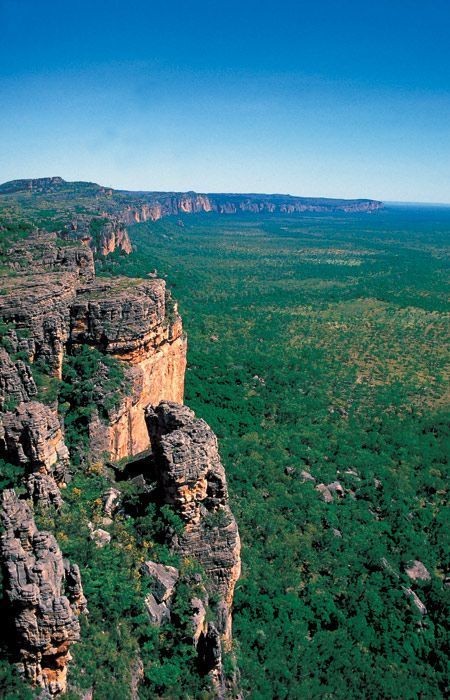
Stone Country Festival: Adventure and Culture in Jabiru’s Wild Heart
Experience the Stone Country Festival in Jabiru, NT—where ancient rock art, rugged trails, and cultural workshops converge in an unforgettable outdoor adventure. Whether you’re a casual explorer or seasoned trekker, this festival offers a practical, immersive journey into the heart of Arnhem Land’s wilderness.
Hydrate Consistently
Northern Territory's dry heat quickly saps energy; drink water regularly—even if you don’t feel thirsty—to avoid dehydration.
Wear Firm-Grip Footwear
Sandstone terrain can shift between smooth and jagged. Choose boots or shoes with good tread and ankle support for stability.
Start Early to Avoid Heat
Temperatures rise fast after sunrise. Begin hikes in the morning to enjoy cooler conditions and better lighting for photography.
Respect Wildlife Boundaries
Freshwater crocodiles inhabit nearby water bodies; enjoy viewing from a distance and avoid swimming or lingering near the water’s edge.
Stone Country Festival: Adventure and Culture in Jabiru’s Wild Heart
Set against the rugged backdrop of the Northern Territory’s Arnhem Land region, the Stone Country Festival in Jabiru offers a uniquely immersive experience where ancient landscapes meet vibrant Aboriginal culture. This annual festival spans several days each August, inviting visitors to walk, learn, and engage deeply with the land's rock art sites, bush skills, and storytelling sessions.
The heart of the festival is a series of guided hikes and workshops oriented around the stone country’s geology and Indigenous heritage. Trails range from gentle 3-kilometer walks to more demanding treks of up to 10 kilometers, crossing sandstone escarpments and dry creek beds. Though elevation gains average around 150 meters, the terrain demands sturdy footwear; sandstone surfaces can be deceptive—sometimes smooth, at other times rugged and cracked, requiring surefootedness.
Morning hikes start with cooler air brushing past gum trees, while earth warmed by the sun offers subtle aromas of eucalyptus and dry timber. As you move through shaded paths flanked by cycads and spinifex, the landscape breathes with ancient presence. Rivers dared by the dry season retreat into shimmering trickles or deep pools guarded by wary freshwater crocodiles. Rangers and local guides tell stories not just of the rocks and paintings but of the spirits that inhabit this fiercely alive place.
For visitors, timing is essential: early mornings maximize comfort in what can become a sharply hot environment by midday. Hydration is key, with the dry heat pushing you to drink steadily even when the climb seems easy. Hats and sun protection are non-negotiable. The festival’s workshops equip attendees with practical bush skills like stone tool crafting and traditional fire making, grounding the adventure in hands-on cultural engagement.
Beyond the trails, the festival offers music, dance, and storytelling around fire pits under wide-open skies. The cultural exchange ties to walking the land in a way that’s both respectful and physically engaging—something that appeals to casual wanderers and serious explorers alike.
Planning your visit means booking accommodation in nearby Jabiru town, which provides the only substantial lodging options within Kakadu National Park’s proximity. Service facilities there ensure you’re well supplied before heading into the wild, where cell service thins and nature regains control.
In all, the Stone Country Festival invites you to step into a landscape that is fiercely itself: untamed, storied, and alive with the pulse of its original custodians. It’s an adventure measured not just in kilometers or elevation, but in the depth of experience and respect earned along the way.
Nearby Trips
All Adventures
Boat Charters
Water Activities
Adventures near Jabiru, NT
Discover the unique and memorable adventures that make Jabiru, NT special.
Frequently Asked Questions
What makes the Stone Country Festival unique compared to other events in Kakadu National Park?
Unlike other local events, the Stone Country Festival focuses on blending physical adventure with deep cultural engagement. It offers guided access to remote rock art sites, hands-on workshops, and Aboriginal storytelling, all framed within the ancient sandstone landscapes.
Are there any age restrictions for participating in hikes and workshops during the festival?
Most activities accommodate a wide age range, but some longer or more demanding hikes recommend participants be at least 12 years old. Consult specific trail guides and organizers for tailored options.
Can visitors join festival events without booking hikes in advance?
While some workshops and concerts are open to all, guided hikes require advance booking due to limited permits and safety considerations within Kakadu National Park.
What should I know about local wildlife encounters during hikes?
The area is home to freshwater crocodiles, wallabies, and diverse bird species. Maintain a safe distance from animals and avoid swimming in natural water bodies.
Is it possible to visit the Stone Country Festival year-round?
The festival runs annually in August, coinciding with the coolest and driest period. While the region can be explored year-round, conditions outside this window range from hot and humid summers to unpredictable wet seasons.
Are there facilities like toilets and water stations along the hiking trails?
Basic amenities are located at trailheads and central festival areas, but trails themselves are remote; visitors must carry sufficient water and plan for minimal infrastructure.
Recommended Gear
Hiking boots
Provide support and traction on sandstone and varied surfaces.
Wide-brimmed hat
Offers essential sun protection for extended periods outdoors.
Hydration pack or water bottles
Ensures consistent hydration in hot, dry conditions.
Lightweight layering jacket
Provides warmth during cold mornings and evenings.
Local Insights
Hidden Gems
- "Nawurlandja Lookout – a lesser-known vantage point offering panoramic views of the escarpment and floodplains"
- "Secret rock art galleries accessible only with traditional custodians during the festival"
Wildlife
- "Freshwater crocodiles (harmless but cautious)"
- "Rainbow bee-eaters"
- "Northern quolls"
- "Black wallaroos"
History
"The region is home to the Gundjeihmi people, whose rock art galleries stretch back thousands of years. The festival emphasizes cultural transmission from elders to younger generations, connecting visitors to this longstanding heritage."
